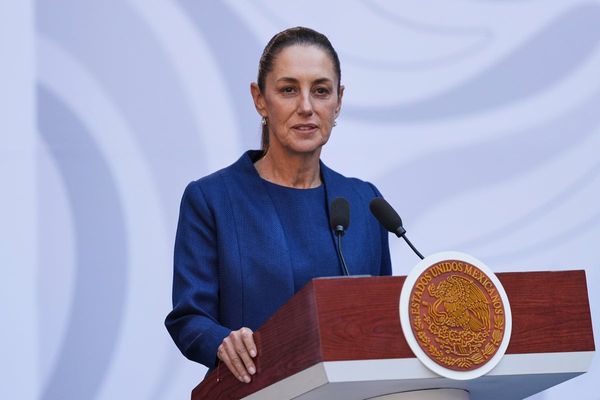
Since April 20thnearly 5 million tons of Russian crude bound for Europe has been stuck in westbound pipelines. The flow of oil is suspended due to high levels of contamination by organochloride, a chemical used to facilitate the extraction of heavy oil. The organic chloride contaminant – which wreaks havoc on refining equipment if not properly treated – allegedly originated from a privately owned refinery called Nikolayeva in Russia’s Samara Region along the Volga river.
The contaminated oil was being shipped via the Druzhba (Friendship) pipeline which boasts an impressive 1 million barrels per day capacity, or 1% of total global crude demand. Russia is the world’s second largest oil exporter after Saudi Arabia, and as a result of the crisis European purchases of oil fell by up to 10% – roughly 1 million barrels per day. This comes as a considerable financial blow to Moscow.
Russia is losing half a billion dollars a day in oil profits – revenue that the country desperately needs amidst biting U.S. sanctions and years of anemic economic growth. To add insult to injury, Transneft, the Russian state-owned company that owns the contaminated section of the pipeline, did not release an official statement regarding the incident until the crisis entered its 11th day. It is still unclear whether the contamination was the result of negligence or sabotage, but on Tuesday, May 7 several suspects were arrested.
The Means, the Motive, the Opportunity
Speaking on May 7 at a government meeting, Russia’s Energy Minister Alexander Novak said “The investigation has revealed a group of companies that transferred standard oil using organochlorine compounds in volumes excessing the norm. The inspection documents have now been handed over to the prosecutor’s office…four people were detained and placed in jail by a court decision.”
The heavy excess of organochlorine in the pipeline is dangerous not only to refining equipment but also people: when exposed to high temperatures the compound creates a poisonous chlorine gas much like that used on the battlefields of World War I.
Brent crude prices skyrocketed to a 6-month high at $75 a barrel because of the contamination which saw 700,000 barrels per day of oil suspended for several weeks. Compounded by supply shortfalls in Iran, Libya, and geopolitical uncertainties in Venezuela, increased crude prices were inevitable. At a time of rising competition with US oil exports, there have been rumors of a possible sabotage scenario. Putting these theories aside, it is clear that in a part of the world increasingly growing skeptical of the Russian oil industry.
The Nikolayevka Oil Refinery Scandal is a quintessential example of Russian energy corruption. The refinery in question was built hastily in 2017 and was privately owned by a prominent Russian oilman by the name of Roman Trushev, a dual Russian-Maltese citizen. Trushev, under financial pressure from Russian banks, sold the ownership of the plant and relinquished all personal and business connections to the refinery by late 2018.
Speaking with media, Trushev recounted that: “since the end of 2018, I haven’t had any relationship with the Samara assets. I have never been the owner of the pipeline access node. It has another owner. Metapron GmbH also isn’t my company. I understand these attempts to find the most extreme explanations, and there have always been and will always be rumors. But there’s no trace of me in Samara!”
It is then indeed strange that Trushev has serendipitously left the country for the “May Holiday” (though he claims he will return). Those arrested are not the main culprits but rather the middlemen of the operation. According to the Meduza report, the suspects include Nefteperevalka CEO Svetlana Balabai and her deputy, Petroneft Aktiv head manager Vladimir Zhogolev, and Sergey Balandin, the deputy leader of the Samara-based transport company Magistral. Two other suspects are currently wanted – their names have not been released
Russian media monitor Meduza has reported that the head of Transneft told Vladimir Putin that the contamination was intentionally executed by a private company in the Samara oblast. Meduza’s investigation has revealed that the “node draining oil into the Russian state-owned pipeline system ended up not just under private ownership, but under the ownership of foreign citizens.” These foreign citizens are Ilse Rosin and Eduard Rosin, who were transferred ownership of the node in November via a limited-liability company called Metapron GmbH registered in Germany. Similar to the days of dictator Joseph Stalin, the Russian media and the state are obsessed with spies and saboteurs.

The accident couldn’t come at a worse time for Moscow. Its economic growth was negative in 2014-2017 and remains anemic in 2018. Even with oil prices recovering since 2008, the Russian economy has not been able to right itself. The political dissatisfaction is now palpable.
If the contamination mystery is resolved quickly and transparently Russia’s status as a major European oil supplier will remain mostly intact. More incidents and accidents halting the supply, however, will result in a massive economic fallout and political setback for the Kremlin.
With Assistance from David Pasmanik







